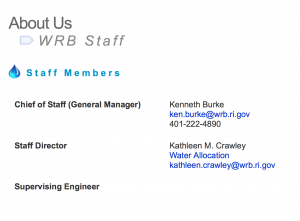 The following is testimony given before the Senate Labor committee on S2377, the Healthy Workplace Bill.
The following is testimony given before the Senate Labor committee on S2377, the Healthy Workplace Bill.
I wish there were no need to convince anyone that we should all have the chance to work in Healthy Workplaces. It sounds like a no brainer. Of course there should be healthy workplaces. Why do I think there is a need to talk about having them? Don’t we already have them?
We are being ever more productive and successful in our businesses, aren’t we, when many CEO’s are earning billion dollar salaries?
Oh I must be talking about businesses and companies different from that.
Actually, no. In every kind of business, every kind of employee, male, female, of all races and income levels can almost expect at some point to be harassed, humiliated, isolated, mobbed (when coworkers side with the bully against the target), gas lighted (pressured to think that they are no longer competent), have their work sabotaged, have lies told about them, have black marks falsely made against their records, be screamed at and excoriated in public or behind closed doors with great regularity followed by being wrongfully terminated.
After such vicious attacks, people are having and often dying of heart attacks, strokes and even committing suicide. There is no quality of life in our workplaces where these toxic conditions exist despite the corporate slogans to achieve, be the best you can be, do more-better- faster.
There is great denial about this happening and there is great misunderstanding about why.
A lot of people think that bosses need to be tough on employees; that employees are by and large lazy and unmotivated, but this simply is not true. In any case, treating people with ever increasing cruelty does nothing for their productivity and therefore the productivity of any business.
The problem as I see it is that money has become our sole indicator of success along with a top down approach to management. Management likes to promote middle managers who will do what they are told but aren’t necessarily the most competent in the actual field of expertise they are managing.
I believe that when those types of middle managers, or others, see productive people around them but they see their job is solely to control others for the top managers, they can feel incompetent and lash out at their underlings – often in staggering displays of violence – either psychological or actual physical onslaughts which can last years. Extreme bullying can take place as the “control message” is passed from upper management down. For example, I and many others witnessed my manager’s boss scream at my manager full blast for 20 minutes in the open. She and everyone around her were out sick the next day. I felt sick hearing the onslaught.
Both targets of bullying and the perpetrators are terrified of losing their jobs so the bullies attack harder and the targets absorb the abuse, initially too terrified to do much of anything in their attempt to survive.
Families, partners and spouses often measure their successes in money as well, often not wanting to notice the ill health of the person making the money, the stress, nervousness, fear at revealing the problem then cut off if they say anything about being bullied at work. The shame.
It also boggles my mind that so much vicious negative energy is expended to indulge in bullying or what I often call “kick the dog” behavior: “I don’t feel that great but making you cringe might help.”
How could that energy be used, instead, to encourage others toward higher objectives, be actually productive, creative or active in the development of the goals of the manager themselves, their employees and the company? I often wondered what my manager had in mind by attacking me daily with literally hundreds of emails and instant messages per day which delayed getting the clients what they expected.
I personally know of two men here in Rhode Island who died of heart attacks following being bullied out of their jobs before retirement. I witnessed many people who were pillars of Quest Diagnostics in Cambridge get bullied from their jobs just before retirement. Their fear at being rehired at their age must have been staggering along with the damage they sustained from being in such a hostile work environment for years. Not only that, the spouses of the Rhode Islanders and even family members were unwittingly no help to them as they feared THEIR livelihood threatened by the possible loss of their husband’s job – “Oh stick with it, dear. EVERYONE has a tough boss.” Imagine the pressure – both at home and at work. Compounded. Isolated.
On the other hand, if the spouse, partner or family member IS supportive, then they are volunteering for the extreme roller coaster of the bully’s whims and how it affects the target. Is he or she going to be not so abusive today or will we have to plan to have the target go out on medical leave because of how the inevitable illness of being so harassed presents itself?
Workplace Bullying is an extreme abuse of power and must be stopped – literally – before more people die.
There was a Vietnam Vet named Ernie LaVoie who worked at the Oxford Public works in Massachusetts. I am told he always had a kind word for everyone. He was routinely harassed for years by his coworkers and managers. Often the nicest people are harassed because they pose no threat. He asked to use a particular piece of equipment in his work, was denied and as an indication he had had it with all the long term abuse, he hung himself on that piece of equipment. He was not weak, disturbed or crazy – the bullies fit those categories. I tell his story to honor Ernie, his friends, coworkers who witnessed and reported his distress and his family.
I lost a dear friend on April 14th in Wisconsin, Cheryll Nelson, who founded a healing group for targets of bullying on Facebook – her own family and husband did not believe she was going thru what she was experiencing. She could not keep up with the demands of two jobs rolled into one at the school where she was the speech therapist and Medicaid biller – not how her job was presented to her originally. She lost track of her health in her attempt to keep up with her work and died after her heart stopped while in a medically induced coma for her out of control pneumonia. She wrote a letter to her manager that she never sent but we in the group got it. Once she died one of our members sent it to the bully. At Cheryll’s funeral, the bully accosted her family who then attacked all of us verbally.
I know personally a man at my church here in Rhode Island who, along with many other teachers at the same school, was taken from his job on a stretcher.
Of course, I need not tell anyone that this should not be happening. What I AM asking is for you to help me and help all of us stop this inhumane activity by giving legal recourse to targets of bullying as presented in S2377 the Healthy Workplace Bill.
If this is what it takes to motivate employers to start treating employees like the valuable producers of the very goods and services that make the company, healthcare organization or business successful, then this is what we must do.
Our conscience, people’s lives and the health of our country demand it.


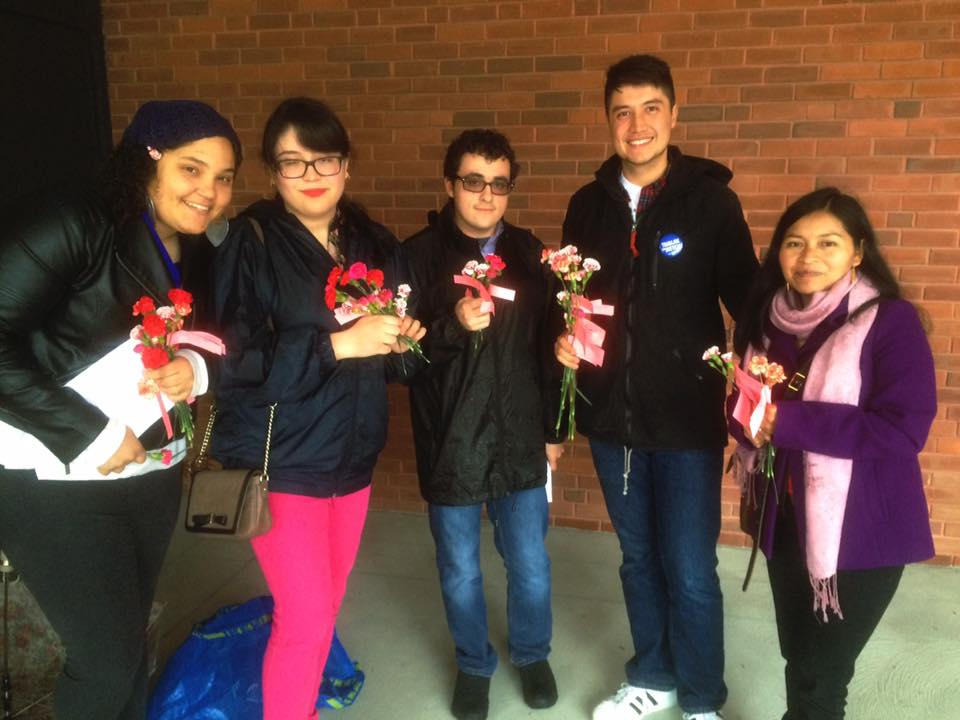

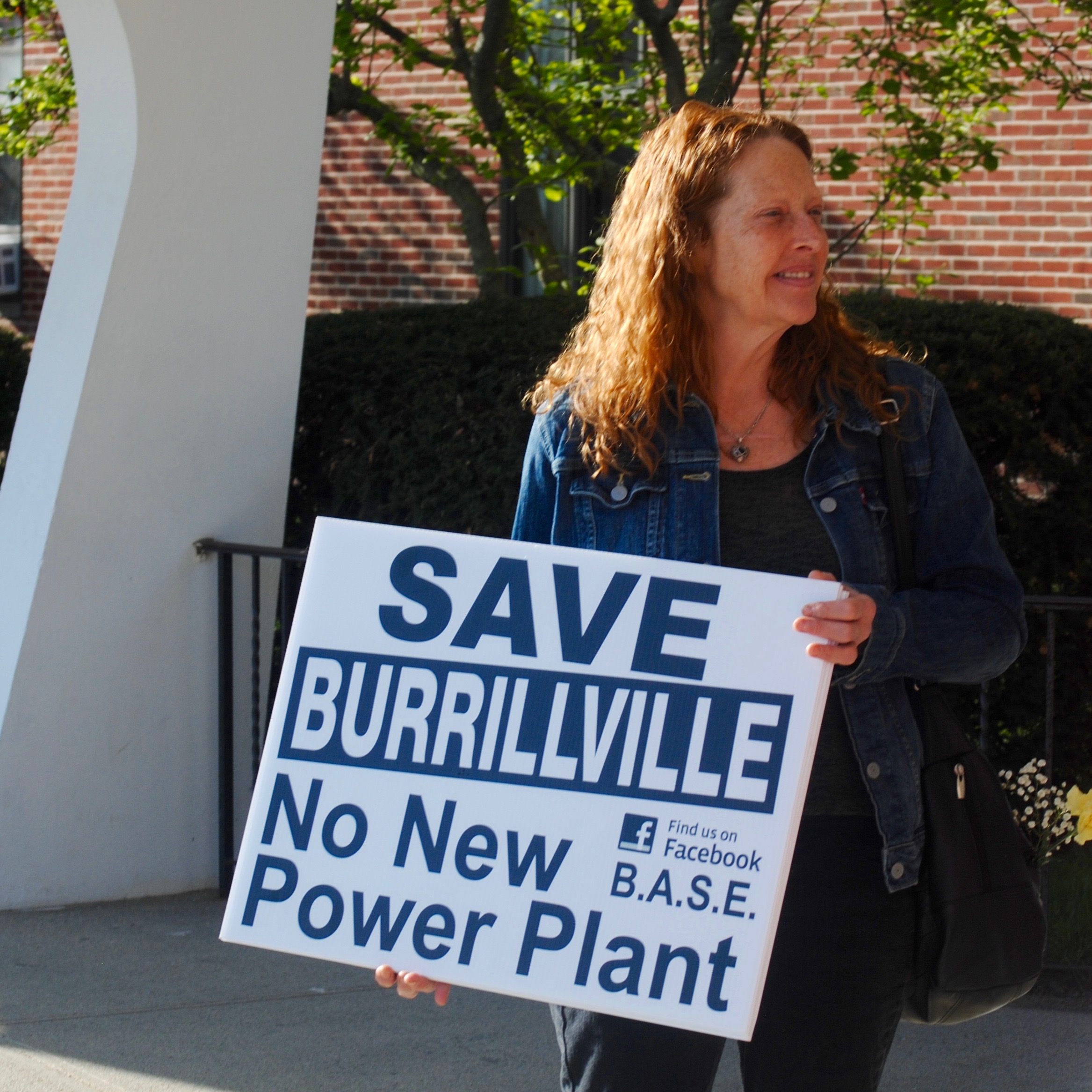
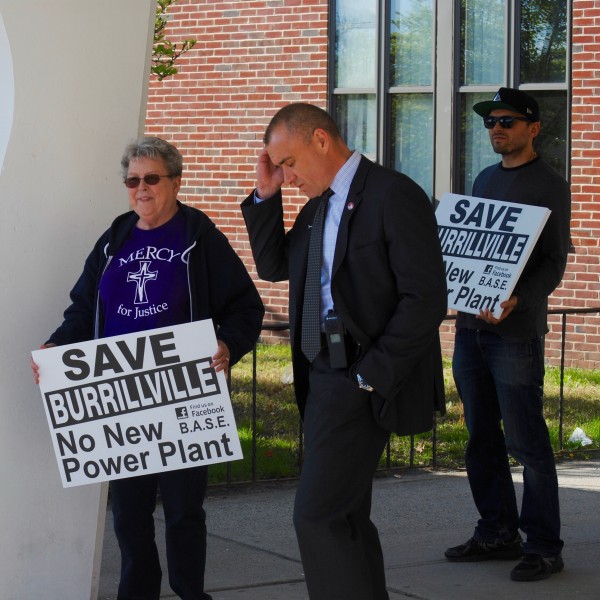 Governor Gina Raimondo agreed to meet with Burrillville residents about the proposed Invenergy power plant Monday evening after Kathy Martley, a Burrillville resident and founder of BASE (Burrillville Against Spectra Expansion) invited her. Raimondo was in Warwick, at the Veterans Memorial High School, as part of her “series of community conversations” around issues of job training. As the question and answer period began, Martley rose to give the Governor a flower and a card and invite her to Burrillville to discuss the power plant.
Governor Gina Raimondo agreed to meet with Burrillville residents about the proposed Invenergy power plant Monday evening after Kathy Martley, a Burrillville resident and founder of BASE (Burrillville Against Spectra Expansion) invited her. Raimondo was in Warwick, at the Veterans Memorial High School, as part of her “series of community conversations” around issues of job training. As the question and answer period began, Martley rose to give the Governor a flower and a card and invite her to Burrillville to discuss the power plant.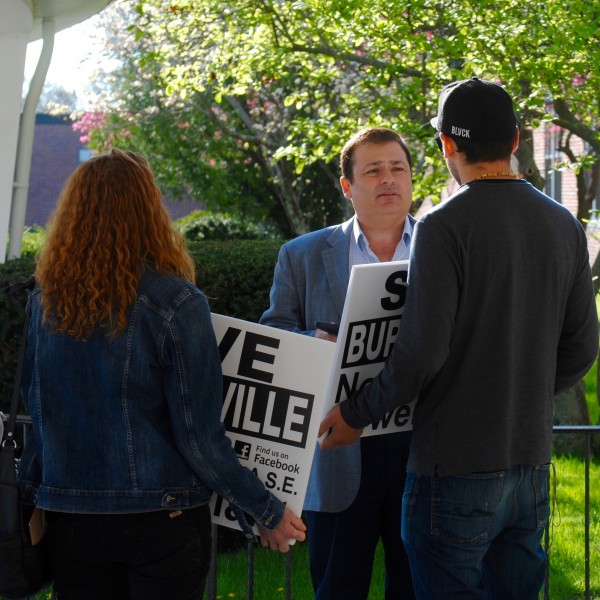

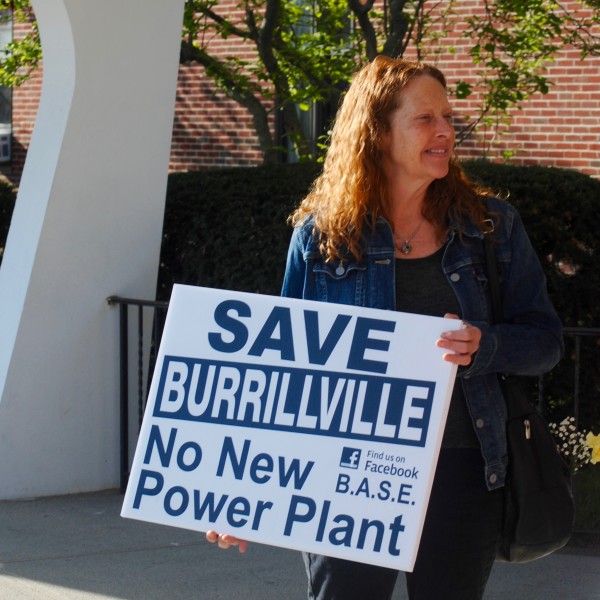

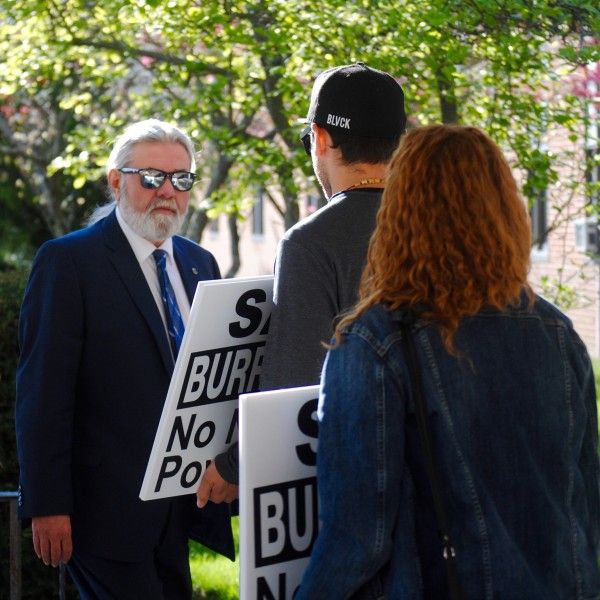

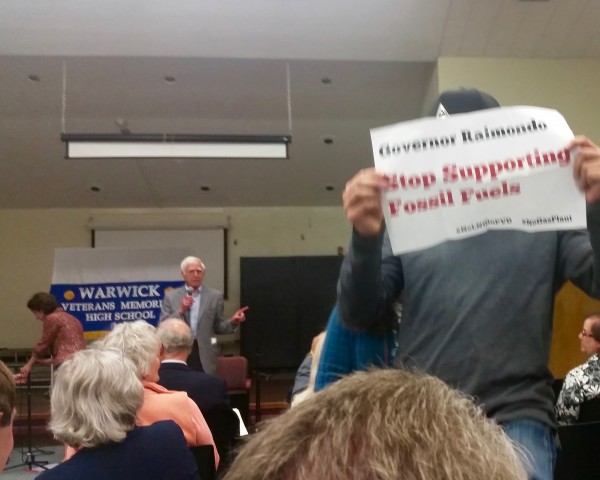


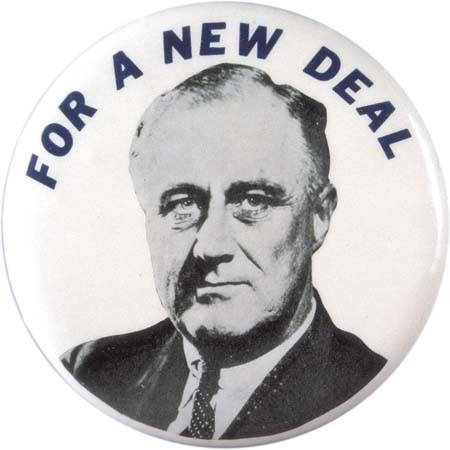


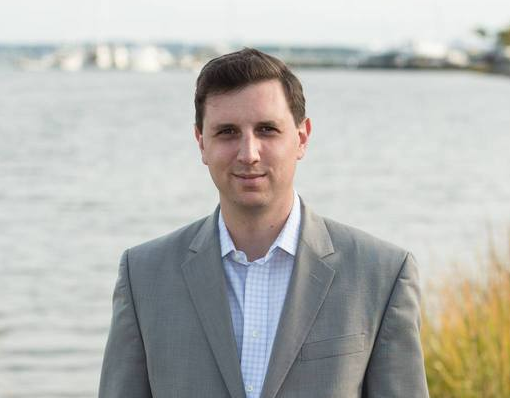
 This begs the question: when will General Treasurer Seth Magaziner do likewise?
This begs the question: when will General Treasurer Seth Magaziner do likewise?
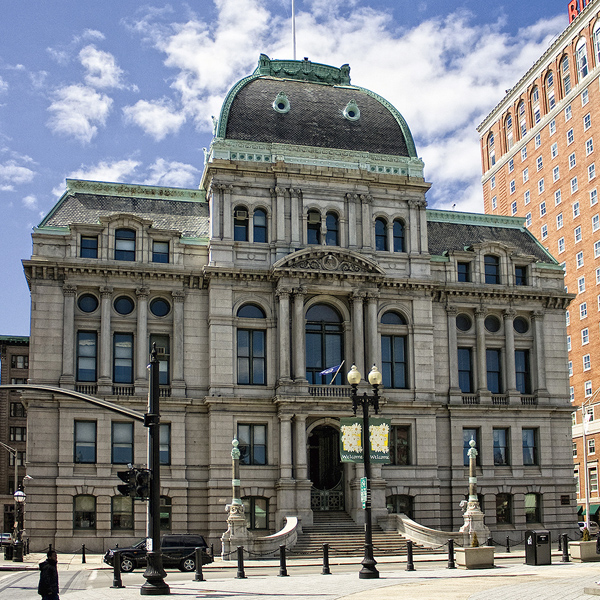
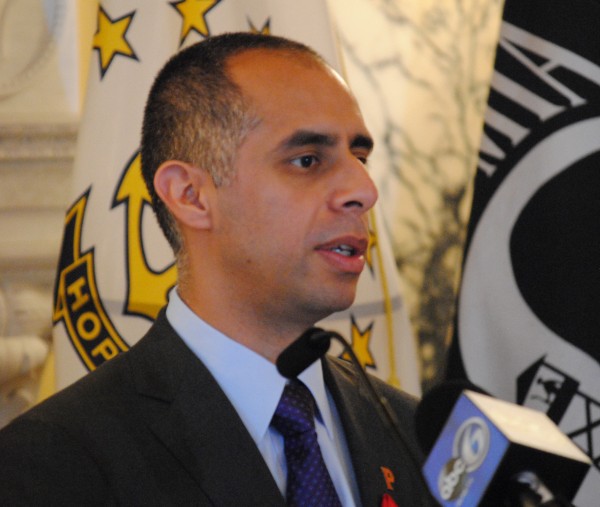


 The GGW piece cited a
The GGW piece cited a 
